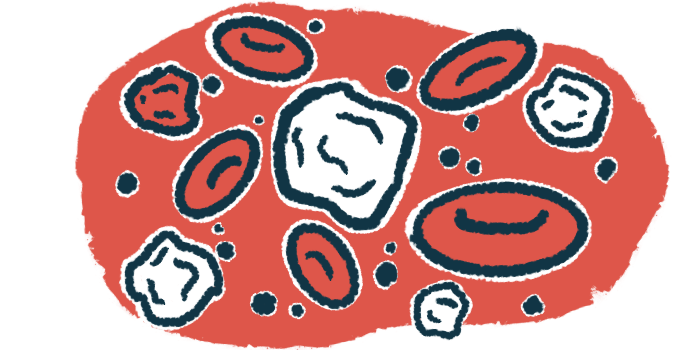Immune cells with CF show signs of problems early in life, study finds
Myeloid cells that fight lung infections immature, unable to break damaging cycle
Written by |

In cystic fibrosis (CF), certain immune cells show signs of dysfunction very early in life, according to a new study that used an animal model as well as blood samples from young children with CF.
Researchers think immune cell deficiencies may influence the cycles of infection and inflammation that contribute to lung damage in patients, implying that therapies to bolster the activity of these immune cells may help improve their health.
“To enable people with cystic fibrosis to live without symptoms, we probably need to tackle the disease on several levels. We hope our work will help us better understand the causes of the defective immune system and correct them in the future,” Nikolai Klymiuk, PhD, the study’s senior author and a professor in the cardiovascular research field at Technical University of Munich, said in a university news release.
The study, “Perinatal dysfunction of innate immunity in cystic fibrosis,” was published in Science Translational Medicine.
Damaging cycles of lung infections and inflammation can be common with CF
CF is caused by mutations in the gene CFTR, which provides instructions to make a protein that’s critical for the production of mucus. Defects in this protein lead to unusually thick and sticky mucus, which builds in the lungs and other organs to drive most disease symptoms.
People with CF commonly experience bacterial lung infections, during which the immune system normally ramps up an inflammatory attack to fight off the invading bacteria. But in patients, this immune attack often isn’t effective at clearing the bacteria, although it damages healthy lung tissue caught in the crossfire. This gives rise to a cycle of infection and inflammation that results in progressive lung damage.
“Although diminished mucus clearance can be restored by highly effective CFTR modulator therapy, inflammation and infection often persist,” the researchers wrote.
An international team of scientists set out to better understand why the immune system’s ability to repel infections is impaired in CF. Using a pig model of the disease, the researchers looked at the activity of lung immune cells shortly after birth.
“We specifically looked at how the immune system behaves in cystic fibrosis before the cycle of infection and inflammation begins,” Klymiuk said.
Compared with typically developing pigs, those with CF-like disease were seen to have much higher numbers of myeloid cells (an immune cell class vital for fighting bacteria) in their lungs. But even though these cells were present in high numbers, molecular profiling suggested that the cells were immature — limiting their ability to fight bacteria effectively.
Immature myeloid immune cells evident in blood of preschoolers with CF
Analyses of immune cells in blood samples from preschool-age children with CF suggested that these immune defects are present in humans as well as in the animal models. Since the immune changes were obvious early in life, the researchers said they’re probably congenital, meaning present from the moment of birth.
“These results were indicative of a congenital … and functionally relevant aberration of the immune system in CF,” the researchers wrote.
In theory, immune cells in CF might be dysfunctional because they need a working version of the CFTR gene to carry out their normal activities. But the researchers found that, in typical newborn pigs, the CFTR gene isn’t active at all in myeloid immune cells. This suggests that the changes in immune activity occur indirectly, through some other mechanism that has yet to be discovered.
“We don’t yet know exactly why the immune cells in cystic fibrosis show such changes,” Klymiuk said. “However, we can show that these occur early in life. They then persist in the further course of life.”
Collectively, the researchers said that their data “highlight the need for additional immunological treatments to target innate immune deficits in patients with CF.”







